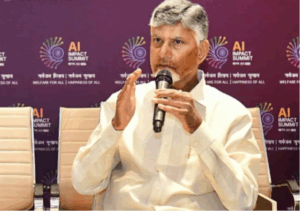
A recent Reddit discussion has ignited a thought-provoking debate about the aspirations of Indian professionals seeking opportunities in Western countries. A European student, in a widely discussed post, expressed skepticism over the continued desire of Indians to migrate, questioning whether Western nations still offer the same allure they once did.
The student highlighted growing economic challenges in the West, including skyrocketing housing costs, stagnant wages, and increased job market competition. They raised concerns over whether the traditional notion of Western prosperity remains intact, especially when contrasted with India’s rapid economic growth and burgeoning corporate sector.
Challenges in the West
Citing affordability issues and employment difficulties even for highly skilled local professionals, the Redditor asked, “How can you, coming from India, believe this is a land of milk and honey where you will succeed in all your endeavors?” This sentiment resonates with an increasing number of Westerners who see migration trends as misaligned with economic realities.
Additionally, the student pointed to India’s accelerating GDP growth and expanding corporate landscape as strong incentives for professionals to remain in their home country. “Looking at it from the outside, India is a country where GDP is growing at such a fast rate, and its prospects for the future look great. Wouldn’t an ambitious Indian have more to gain from starting their own business or working in corporations within its rapidly growing economy?” they questioned.
The Indian Perspective
The post prompted diverse responses from Indian users, many of whom provided nuanced counterarguments. While acknowledging India’s growth, some highlighted systemic issues such as bureaucratic inefficiencies, corruption, and limited opportunities for innovation and research as key reasons for seeking opportunities abroad.
“India is growing, but so is its population. The competition here is brutal, and opportunities are limited if you’re not from a privileged background,” remarked one user.
Others emphasized qualitative aspects of life in the West, such as work-life balance, superior infrastructure, and greater personal freedoms. “It’s not just about money; it’s about work-life balance, better infrastructure, and personal freedom. Those things still matter,” noted another commenter.
However, some agreed with the European student’s perspective, stressing that India’s cost of living remains more manageable, leading to a better quality of life for those earning well domestically. “The cost of living in the West is insane. I earn well in India and enjoy a far better quality of life than my friends who moved abroad and are drowning in rent and expenses,” shared a respondent.
A Complex Decision
The debate underscores the complexity of migration decisions, revealing a spectrum of economic motivations, cultural preferences, and career ambitions. While Western countries continue to attract skilled professionals due to perceived stability and opportunities, India’s rise as a global economic force is making some reconsider whether relocating abroad is still the best path to success.
Ultimately, migration remains a deeply personal choice, shaped by individual aspirations, economic realities, and lifestyle priorities. As both India and the West evolve, the dynamics of professional mobility will likely continue to shift, reflecting changing global trends and opportunities.
Recent Random Post:
















